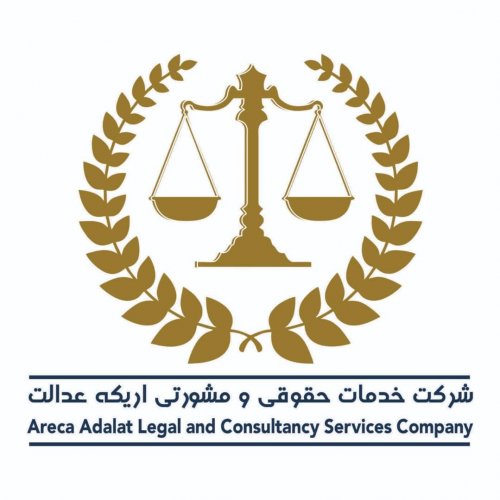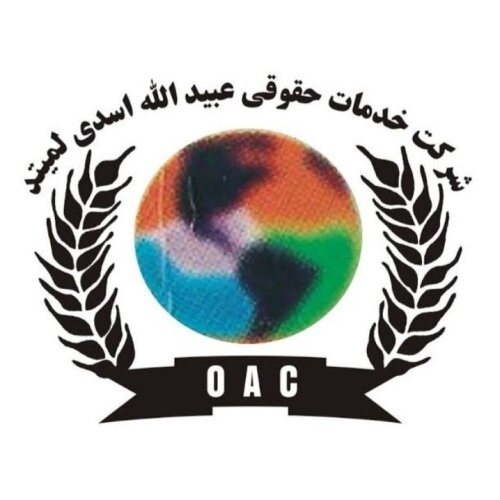Best Family Lawyers in Afghanistan
Share your needs with us, get contacted by law firms.
Free. Takes 2 min.
Free Guide to Hiring a Family Lawyer
Or refine your search by selecting a city:
List of the best lawyers in Afghanistan
About Family Law in Afghanistan
Family law in Afghanistan is primarily governed by Islamic law, which is a significant influence on the nation's legal system. Issues related to marriage, divorce, child custody, inheritance, and other family matters are addressed through a combination of Sharia principles and statutory laws. The Afghan Civil Code, the Marriage Law, and other legislative measures outline the legal framework. Due to the cultural and religious significance of family in Afghan society, these laws can be complex, especially when traditional customs intersect with formal legal practices.
Why You May Need a Lawyer
Navigating family law in Afghanistan can be challenging due to the legal and cultural intricacies involved. Here are some common situations where you might require a lawyer's assistance:
- Marriage and Divorce: When entering into or dissolving a marriage, legal guidance is crucial to understanding rights and obligations under both statutory and Islamic law.
- Child Custody and Support: Disputes regarding custody and financial support for children may necessitate legal intervention to ensure fair outcomes.
- Inheritance: Legal counsel can help navigate the complexities of inheritance, particularly in cases of disagreement among heirs.
- Domestic Violence: Victims of domestic abuse may need legal assistance to seek protection and understand their rights.
- Property Division: A lawyer can help in the equitable division of property during divorce proceedings.
Local Laws Overview
Family law in Afghanistan encompasses several key areas:
- Marriage: Governed by the Marriage Law, which adheres to Islamic requirements. Legal age, consent, and registration of marriages are crucial components.
- Divorce: Islamic principles significantly influence divorce proceedings, and the process can be initiated by either party under specific circumstances.
- Custody: Child custody decisions prioritize the welfare of the child, with mothers typically receiving preference for young children.
- Inheritance: The inheritance process is dictated by Islamic law, with shares allocated to heirs as prescribed in Sharia.
- Protection Against Violence: While legal protections exist against domestic violence, cultural stigmas can complicate enforcement.
Frequently Asked Questions
What is the legal age for marriage in Afghanistan?
The legal age for marriage is 18 for males and 16 for females. However, cultural norms may sometimes influence adherence to these ages.
Can women initiate divorce proceedings?
Yes, women can initiate divorce proceedings under Islamic law, but the grounds for divorce must be justified and proven.
Who gets custody of children after divorce?
Custody is generally awarded based on the child's best interests, with mothers commonly favored for young children, although this can vary based on circumstances.
How are inheritance shares determined?
Inheritance shares are determined according to Islamic law, which specifies fixed shares for relatives including parents, spouse, and children.
What rights do women have in terms of property ownership?
Women have the legal right to own and inherit property, although cultural practices sometimes restrict these rights in practical terms.
Is polygamy legal in Afghanistan?
Polygamy is permitted under Islamic law, allowing a man to have up to four wives, provided he can treat them equitably and meet certain conditions.
What can I do if I am a victim of domestic violence?
Victims should seek legal protection and can file a complaint with the police or relevant governmental bodies for assistance.
Is a pre-nuptial agreement recognized by Afghan law?
Pre-nuptial agreements are not commonly practiced and may not be formally recognized, though they can be used as a mutual agreement tool.
How can a foreigner marry in Afghanistan?
A foreigner can marry in Afghanistan, but must adhere to Afghan marriage laws, including securing residency and ensuring consent from both parties.
What should I do to prepare for a divorce case?
It's advisable to collect all necessary documents related to marriage, property, and children, and consult a lawyer for legal guidance.
Additional Resources
For those seeking further assistance or information, the following resources may be helpful:
- Ministry of Justice: Offers legislative texts and guidance on family law matters.
- Legal Aid Organizations: Provide support and representation for those unable to afford private legal services.
- Local Courts: For filing and processing family law cases and accessing public legal assistance.
- Human Rights Organizations: Support victims of violence and provide advocacy services.
Next Steps
If you need legal assistance in family matters, consider the following steps:
- Research and contact a qualified family lawyer in your area with experience in Afghan family law.
- Gather all relevant documentation and information related to your legal issue.
- Prepare a list of questions and concerns to discuss with your lawyer.
- Consider reaching out to a legal aid organization if you require affordable assistance.
Taking these proactive steps can help ensure that you receive the appropriate legal guidance and representation in addressing your family law issues in Afghanistan.
Lawzana helps you find the best lawyers and law firms in Afghanistan through a curated and pre-screened list of qualified legal professionals. Our platform offers rankings and detailed profiles of attorneys and law firms, allowing you to compare based on practice areas, including Family, experience, and client feedback.
Each profile includes a description of the firm's areas of practice, client reviews, team members and partners, year of establishment, spoken languages, office locations, contact information, social media presence, and any published articles or resources. Most firms on our platform speak English and are experienced in both local and international legal matters.
Get a quote from top-rated law firms in Afghanistan — quickly, securely, and without unnecessary hassle.
Disclaimer:
The information provided on this page is for general informational purposes only and does not constitute legal advice. While we strive to ensure the accuracy and relevance of the content, legal information may change over time, and interpretations of the law can vary. You should always consult with a qualified legal professional for advice specific to your situation.
We disclaim all liability for actions taken or not taken based on the content of this page. If you believe any information is incorrect or outdated, please contact us, and we will review and update it where appropriate.
Browse family law firms by service in Afghanistan
Afghanistan Attorneys in related practice areas.
Browse family law firms by city in Afghanistan
Refine your search by selecting a city.










